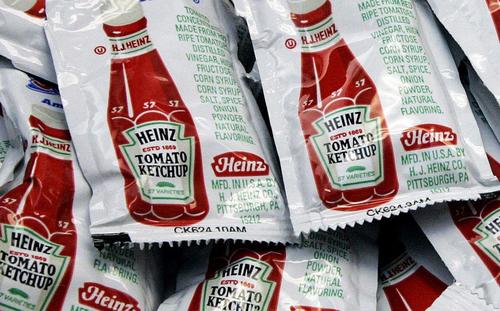Ketchup Can’t Catch Up As Nationwide Shortage Fries Restaurants, Fast-Food Chains
Ketchup packets are the next COVID-19-related nationwide shortage.
America’s most popular condiment, ketchup packets, are in short supply at restaurants across the country, according to The Wall Street Journal.
The shortage materialized over the last year as public health orders forced restaurants to close or limit indoor dining, which resulted in a boom in takeout orders. There were also health and safety guidelines from the Centers for Disease Control and Prevention (CDC) that advised restaurants to “avoid using or sharing items that are reusable such as menus, condiments and any other food containers” to prevent the spread of the virus. More specifically, the CDC recommended eateries to use “single-serving condiments,” such as individual packets.
Numerous regulations and or advisories sent ketchup packet prices surging, up more than 13% since the beginning of the pandemic. Heinz, the largest producer who controls 70% of the US condiment market, was overwhelmed by demand, and this is how the shortage was sparked.
Heinz told the Journal it would shortly increase production by a quarter, for a total of 12 billion packets per year. America’s most widely used ketchup brand confirmed it still couldn’t keep up with orders for its ketchup packets.
The shortage forced larger restaurant chains to find alternatives, the report said. From mom-and-pop eateries to large chains, restaurants nationwide have been scrambling to find alternative brands to fill the void.
“We’ve been hunting high and low,” said Chris Fuselier, operator of a small Denver-based eatery called Blake Street Tavern, who has struggled to source ketchup packets in 2021.
Large chains like Texas Roadhouse and Long John Silvers have had to purchase other brands of ketchup.
“We feel like the bottom of the barrel,” Texas Roadhouse spokesperson Travis Doster told the paper.
Texas Roadhouse used 55 million ounces of ketchup last year and has resorted to sourcing ketchup at Costco and other wholesalers.
Kraft Heinz said when restaurant demand collapsed at the beginning of the pandemic, it saw a monumental shift to takeout and delivery and pivoted production lines to meet those needs. Still, demand is greater than supply.
Other recent shortages include flour, aluminum cans as people consume beverages at home, plastics, lumber, steel, semiconductors, sofas, fitness equipment, hot tubs, electronics, and cookware.
Goldman Sachs told clients last month that supply chain woes might not be resolved until 2022.
Tyler Durden
Wed, 04/07/2021 – 20:40
via ZeroHedge News https://ift.tt/3s7YvRD Tyler Durden
